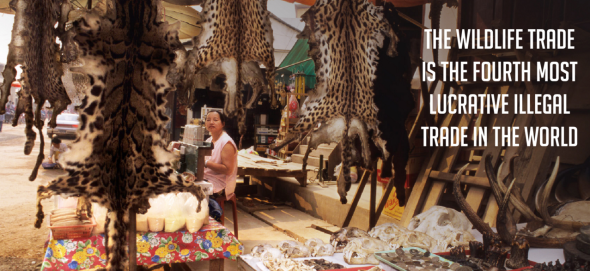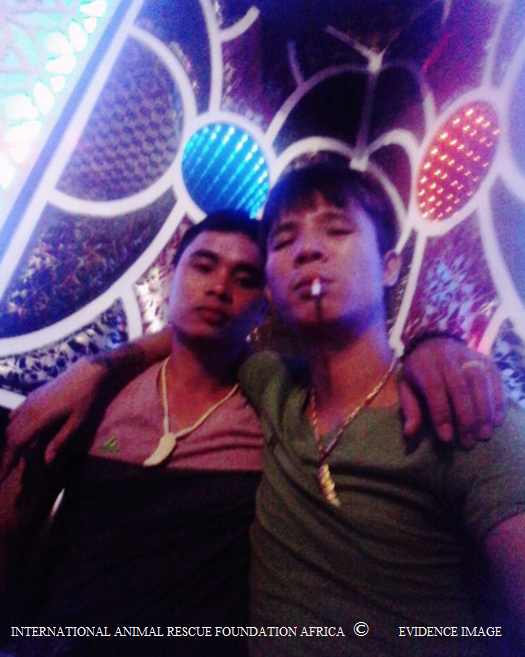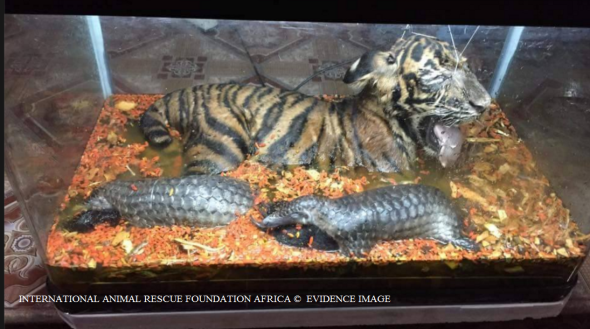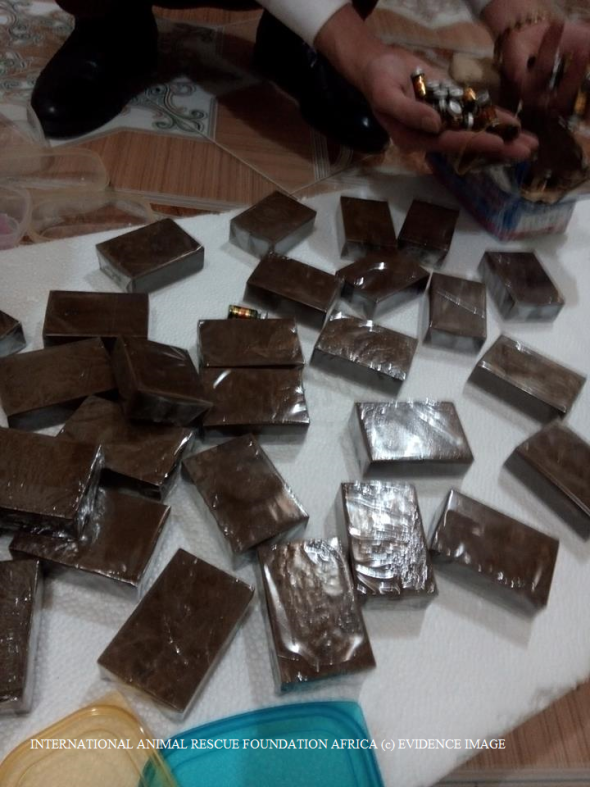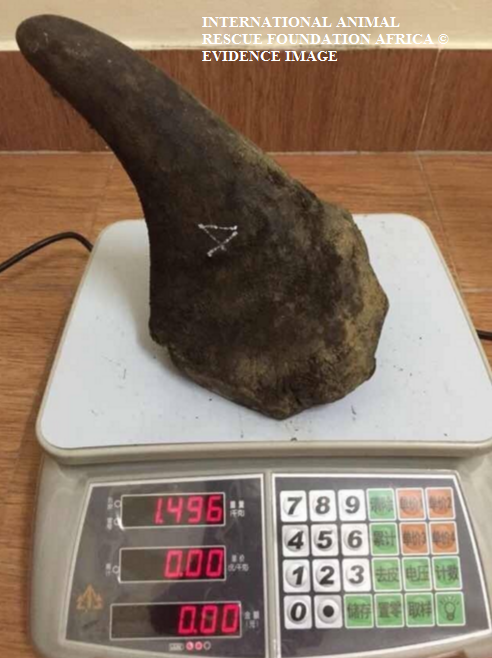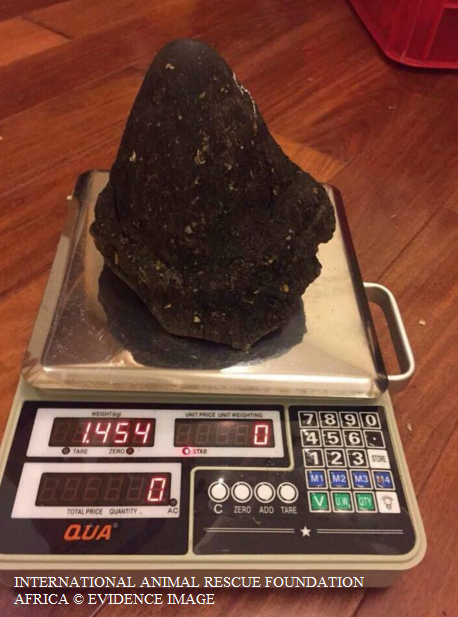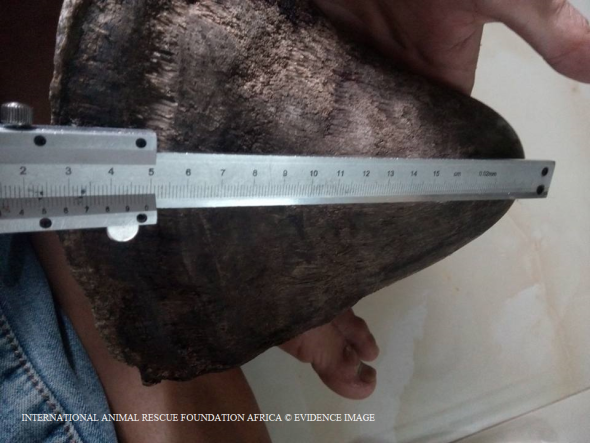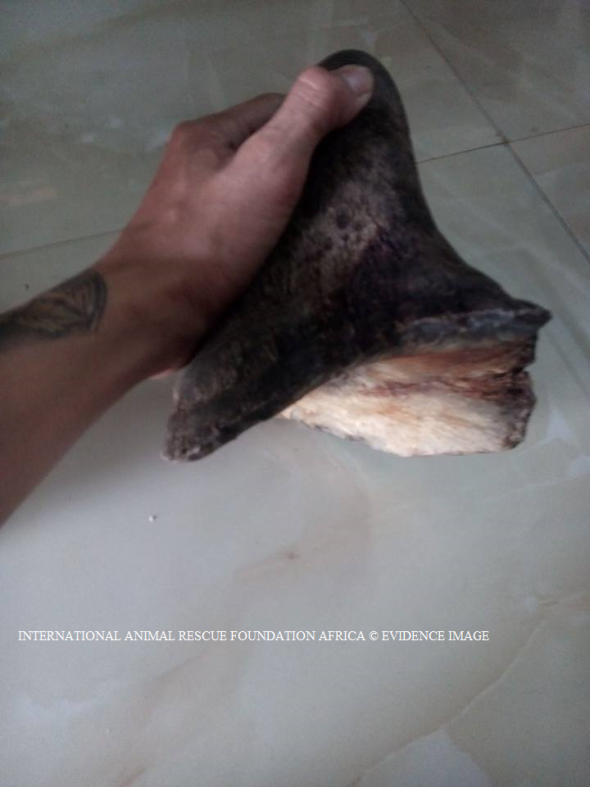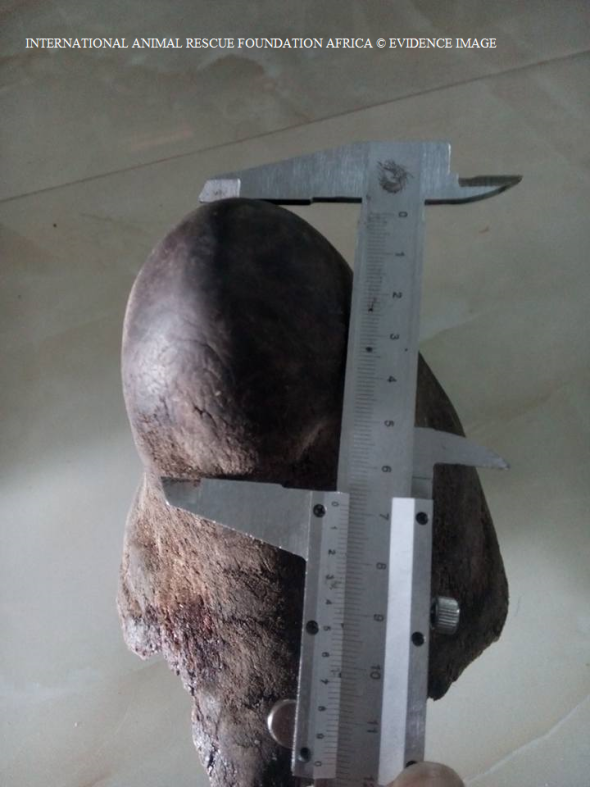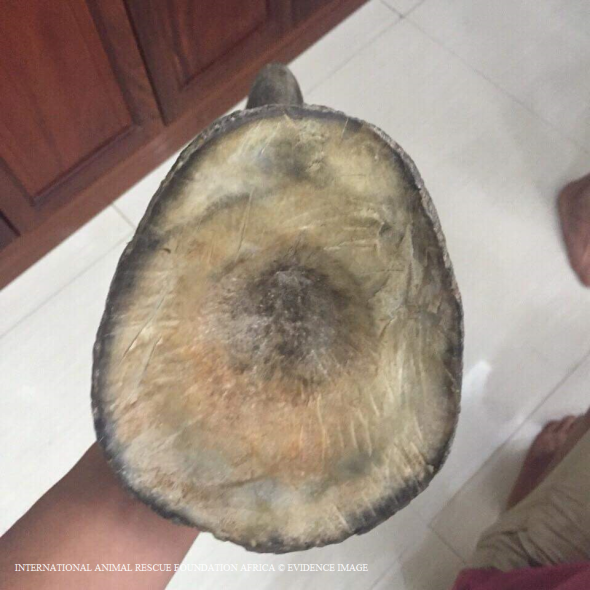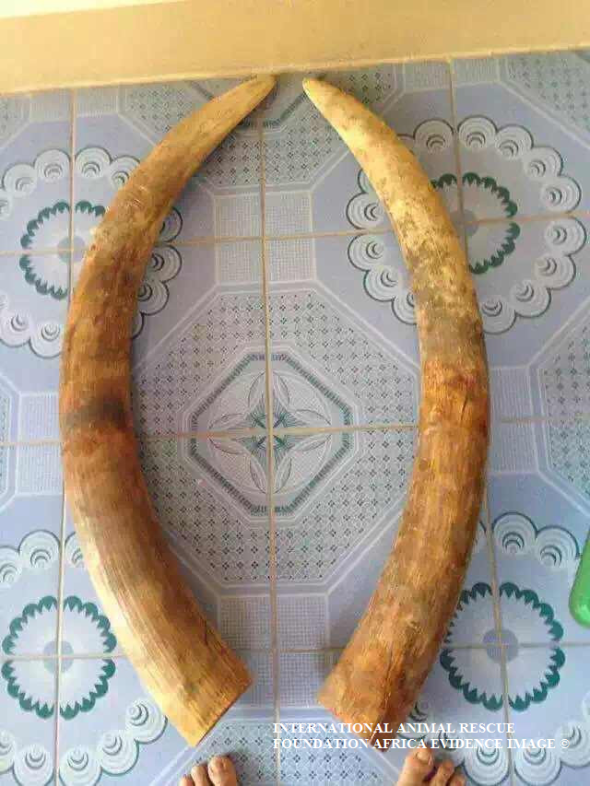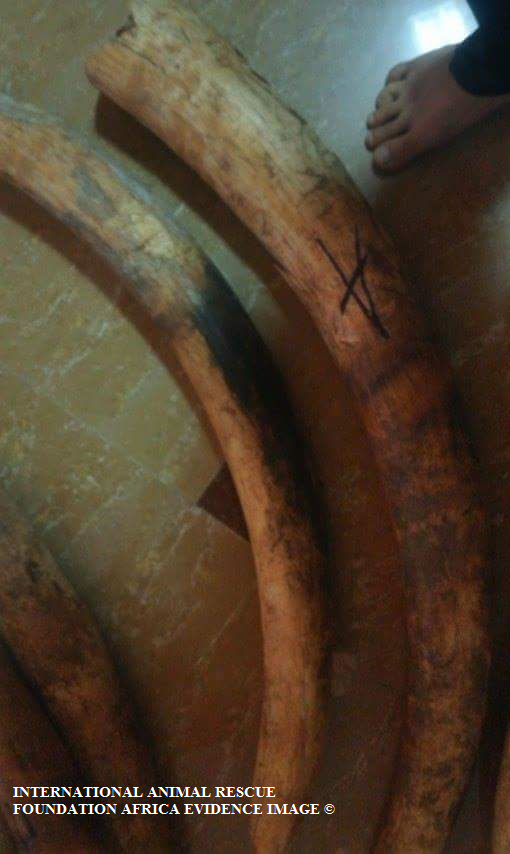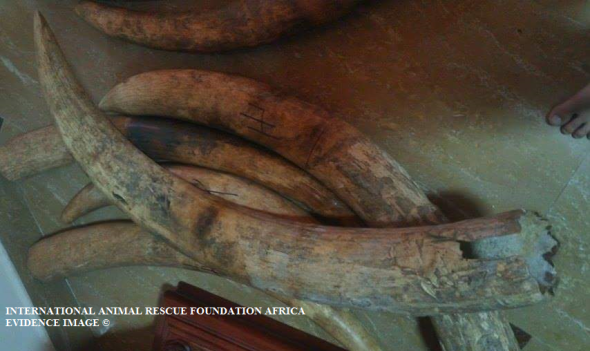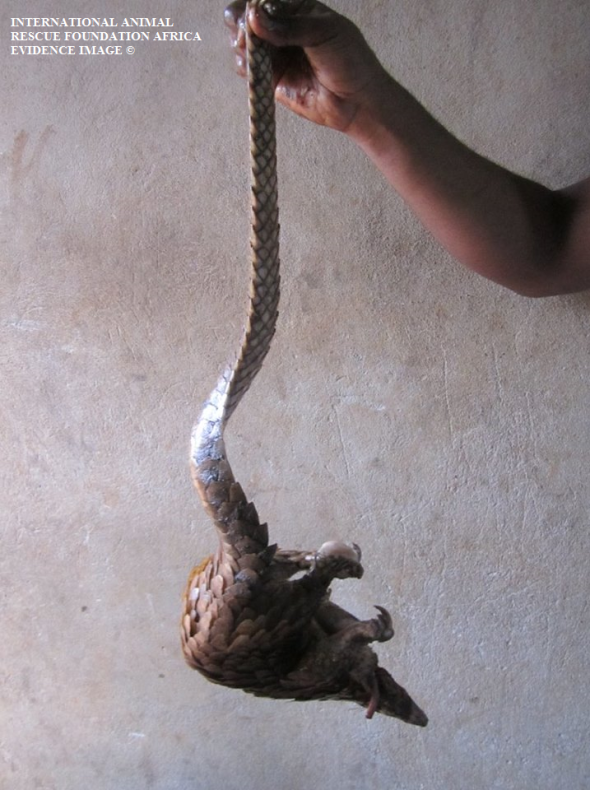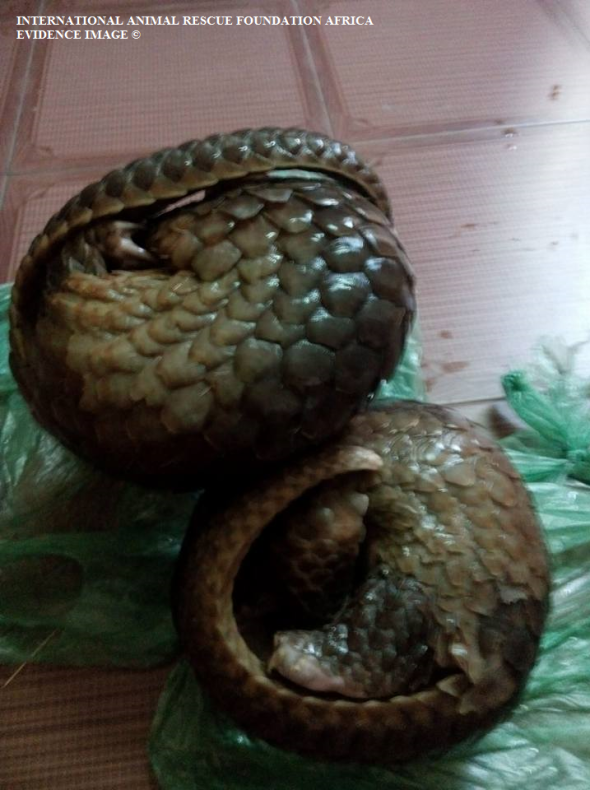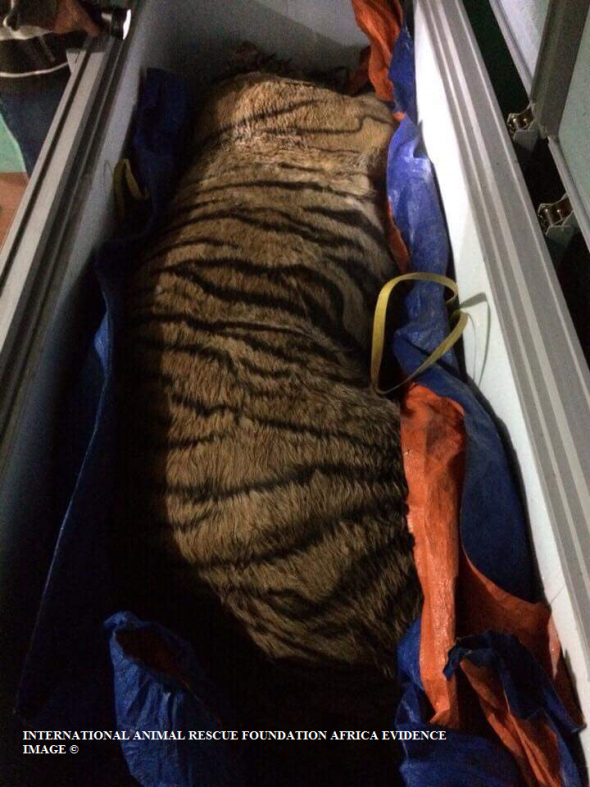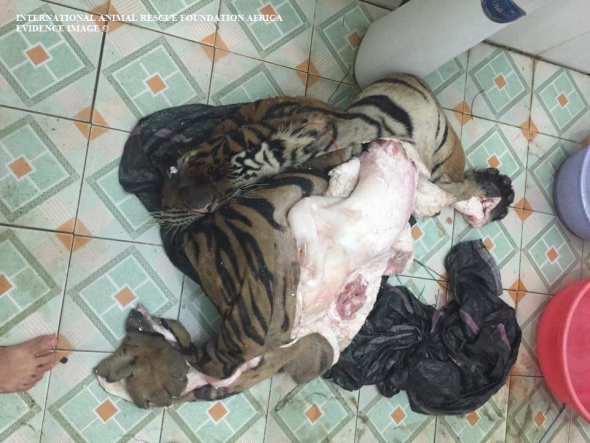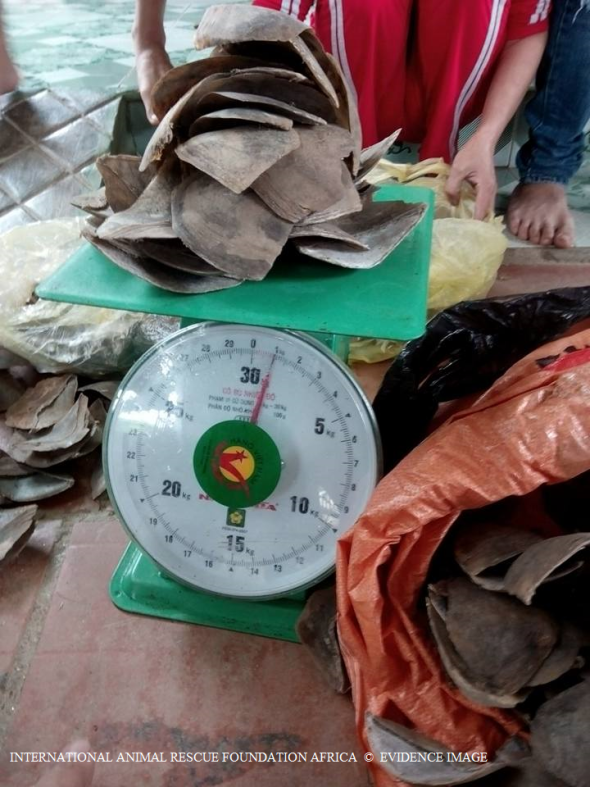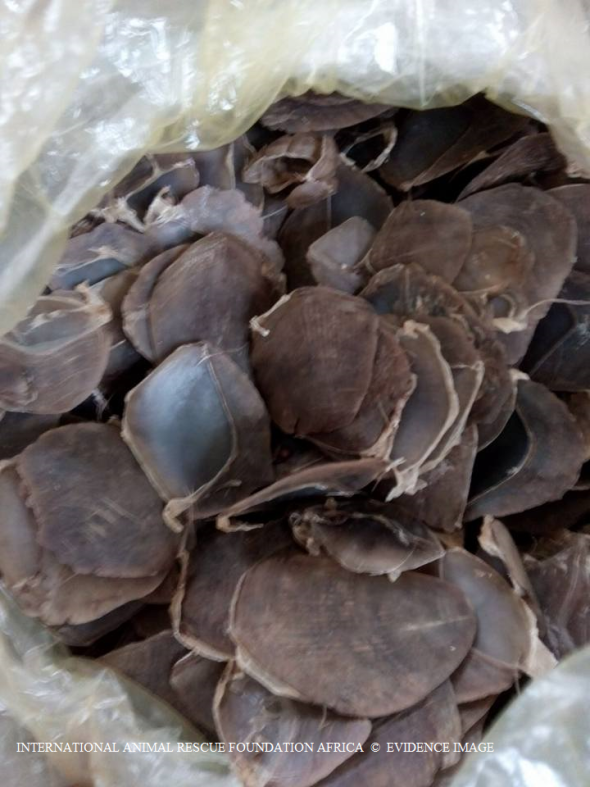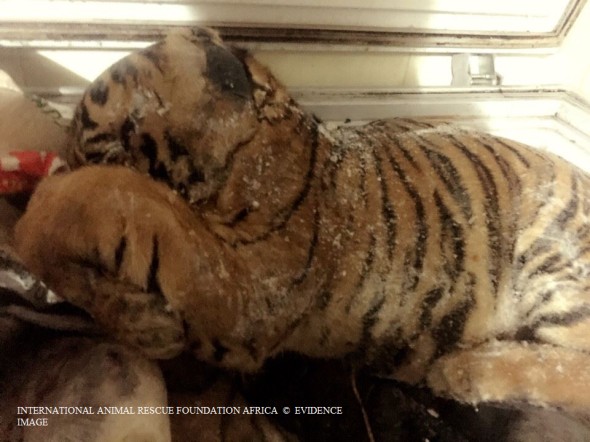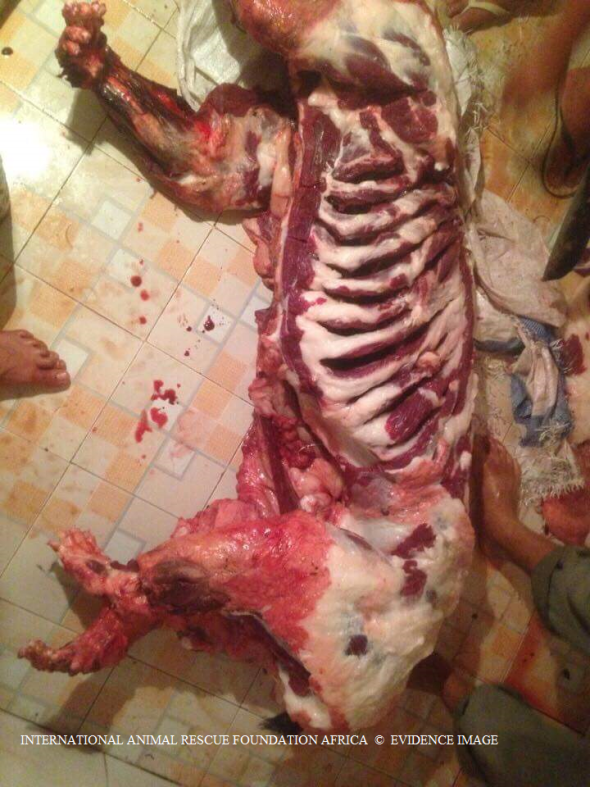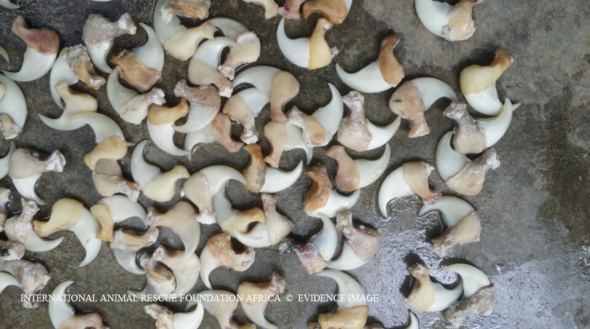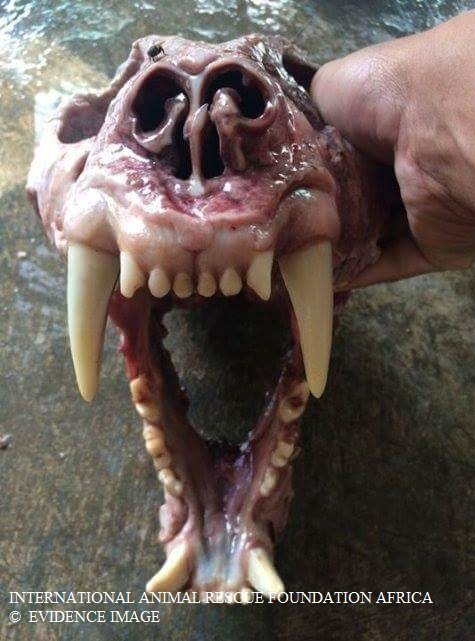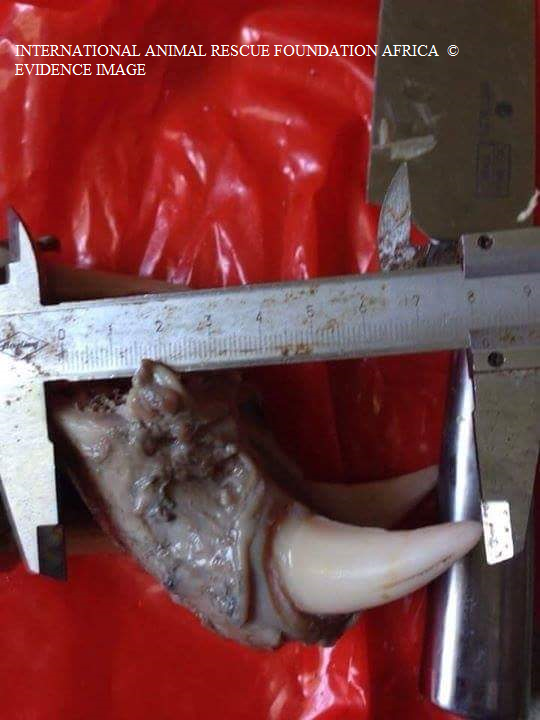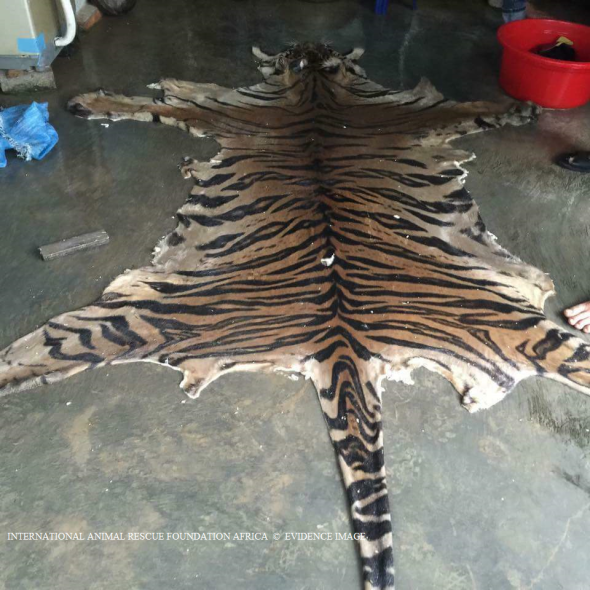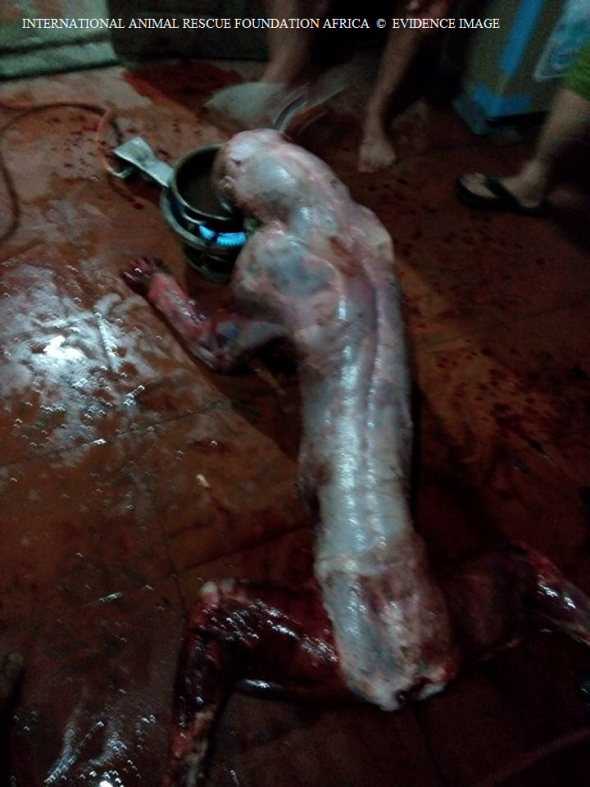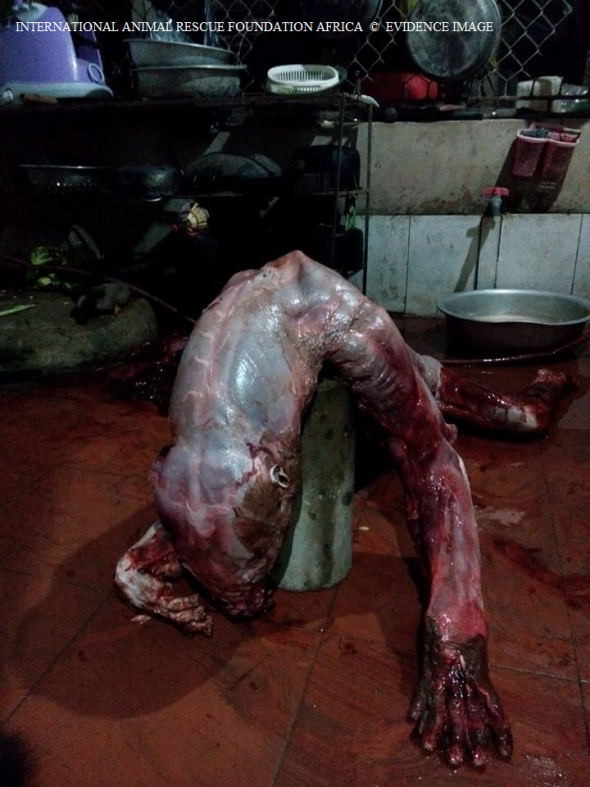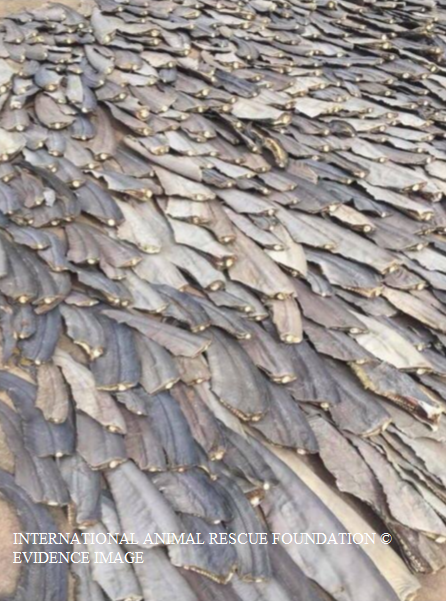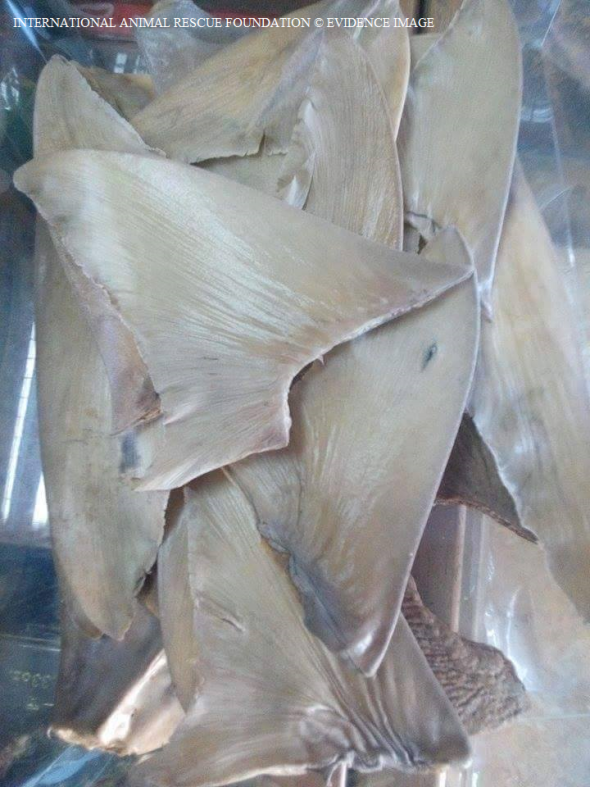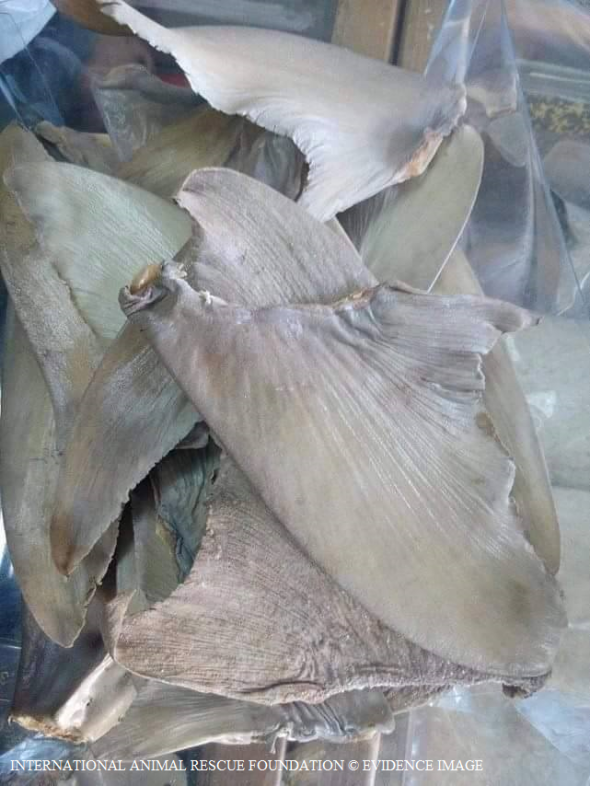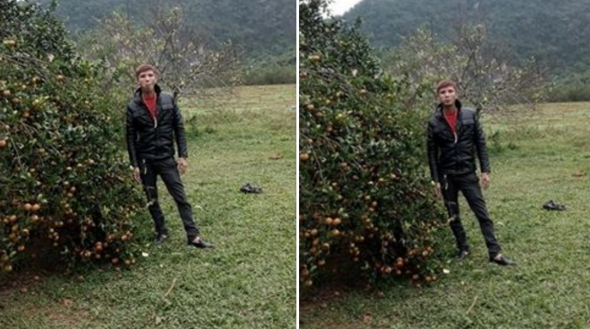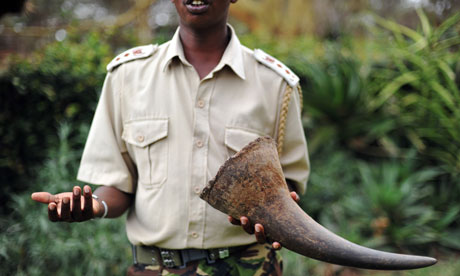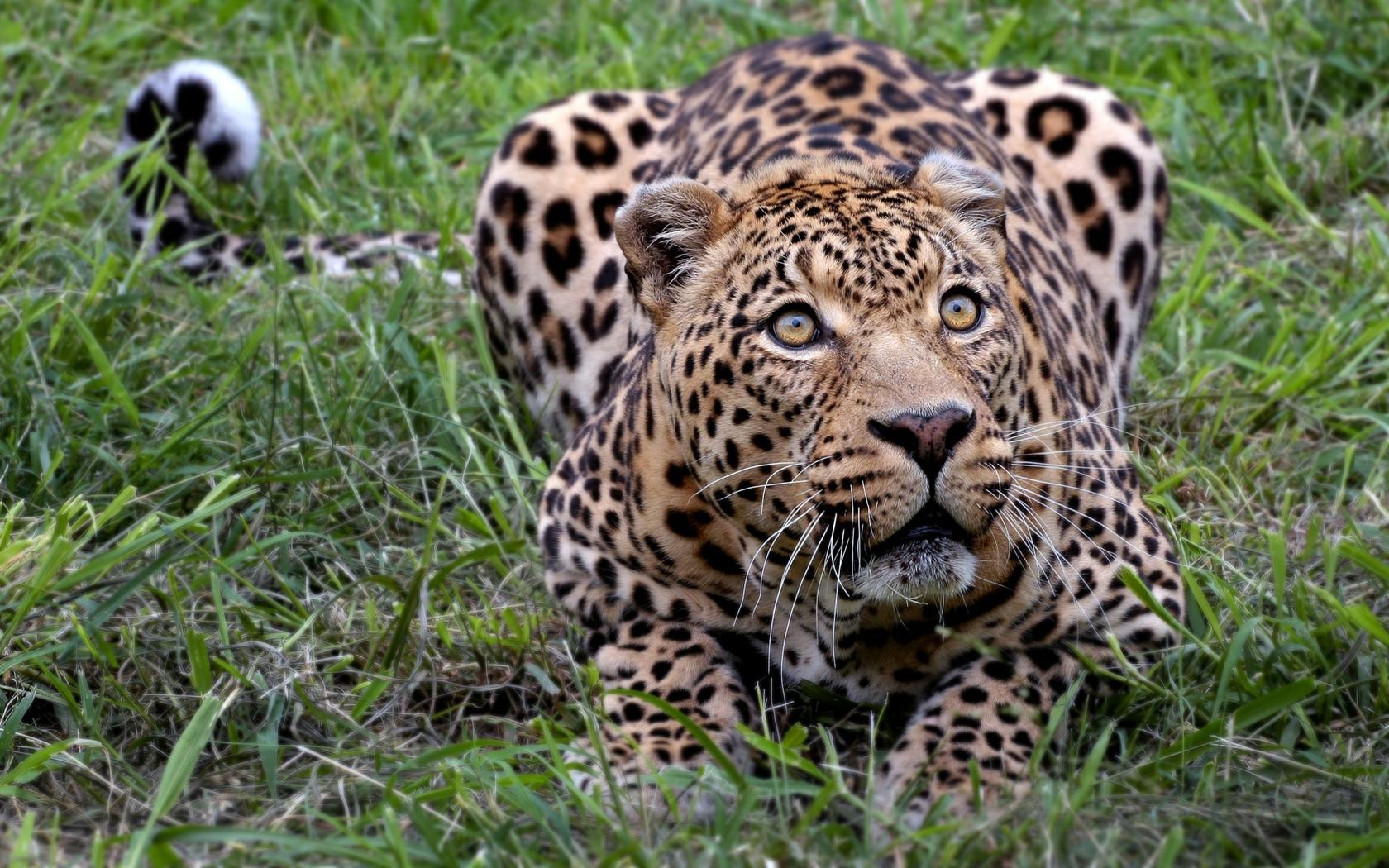Illegal Wildlife Trade | Investigative Report | Viet Nam & Thailand.
ILLEGAL WILDLIFE TRADE IS BOOMING
WARNING - THE FOLLOWING INVESTIGATIVE REPORT IS GRAPHIC
Investigative report written by: Dr Jose C. Depre.
International Animal Rescue Foundation Africa and her External Affairs Environmental Investigations Department commonly known as the (EAD), have for the past year been warning police agencies, and Interpol internationally and locally to tighten the grasp on the black market illegal wildlife traders, after a sudden spike was witnessed by us in trade emerging from Thailand and Vietnam (2013-2014)? IARFA’s External Affairs operations unit were somewhat suspicious as to why so many rhino and elephants were being poached, yet very little in the way of fresh animal parts I.e rhino horn and elephant tusk were being seen on the ground.
Back in 2014 the BBC reported that rhino horn and ivory in Viet Nam and China had heavily decreased (or was becoming more difficult to obtain), we disagree with the BBC’s 2014 documentary and have shown the evidence below to prove that trade is more than active in Viet Nam, with Thailand now the new rhino horn hub. We’re unsure as to what has caused this sudden increase of illegal trade and poaching in Africa and Asia, and the skyrocketing demand online, primarily on the United States social media platform identified as Facebook. What investigators located in the past year has shocked us, and has led to a multinational investigation spanning over 19 countries, resulting in IARFA’s biggest wildlife crimes investigation to date.
(NB: The following evidence depicted herein is of a graphic nature and viewer discretion is strictly advised).
A further concern was the sheer fact that rhino horn was becoming more difficult to locate on the streets of Viet Nam, which was also highlighted in the video below via the BBC (2014), yet rhinos are being slaughtered at some 5-7 a day on the African continent, primarily in South Africa. So we sent in our team of investigative officers to track down where we believed rhino horn and wildlife syndicates and traders were now in operation. The shocking evidence below proves what we believed all along. Thailand has become a hot bed for illegal rhino horn trade, and Facebook has yet again exploded with online illegal wildlife ‘profile shops’ and pet trade that criminals hide behind to peddle their trade on a grande scale.
Back in 2012 the External Affairs Department recruited a further twelve investigative volunteers due to worrying trade increases of mainly ivory, rhino horn and endangered tropical pets that were being sold at ground level, and on Facebook. Furthermore the (EAD) increased its online presence in relation to cyber crime projects run by Operation Trojan Horse founded in 2008 after it became apparent teenagers as young as 16 were illegally peddling animal parts and endangered tropical pets via their Facebook social media profiles.
While the (EAD) and her counterparts from the Operation Trojan Horse Online Surveillance Unit have been successful in locating and closing down illegal wildlife and pet traders (with arrests and seizures being made). Very little in the way of a decrease of demand and trade is being noted. Countless complaints to the United States Facebook platform with petition, hasn’t been successful either. Despite the fact illegal wildlife trade ranks as the worlds 4th largest illegal trade funding terrorism, narcotics, prostitution and child trafficking.
Over the past 365 days the External Affairs Department have been monitoring unusual peaks of the trade in rhino horn, ivory and tiger parts within Viet Nam, Thailand and Japan, with much online chatter from traders in Benin, Cameroon, South Africa and Namibia to Asian citizens peddling animal parts. Two individuals (pictured below) we’ve been wanting to catch up with now for over six months, after the duo skipped a meeting with two of our EAD officers in Thailand regarding the sale of rhino horn.
Its unsure if the two knew we were onto them, or they simply missed the meeting for unknown reasons. Either way and with a stroke of luck after data obtained from a bush meat trader in Cameroon we managed to catch up with our fiends again. This time the evidence we hold on them is so large it spans from Asia directly into Africa. From the 23rd December 2015 investigative officers from the EAD’s (Cyber Crime Unit) then moved into quickly obtain evidence to pass onto Interpol. From the 29th December 2015 (17:00hrs) we can now confirm the following evidence herein has prompted Interpol to now launch an ‘urgent investigation’ into serious wildlife crime spanning from Asia to Africa.
Had the meeting gone ahead back in June 2015 it would have led us ‘directly’ onto a more larger wildlife trading syndicate that we’ve been monitoring within Beijing, China since 2014, identified as Mr Ji Lu or Ken as he calls himself. Unfortunately the trail went dead, both the two young men and Mr Ji Lu vanished off the External Affairs radar. Then the EAD struck gold last week before Christmas after a random trace of a Cameroon bush meat poacher in Africa. We’ve long known that African bush meat poachers and traders communicate to Asian wildlife traders and syndicates either online in private chat forums, or via stolen cell phones. This time we had our men, more than enough evidence to launch a multinational investigation and further information that has led us onto newer more sophisticated traders.
“Thailand is the new hotbed for rhino horn trade”
However never did the EAD or ourselves believe we’d again come face to face with some of the most evil and sadistic animal parts traders we’ve ever encountered. If the images and evidence below is not enough to shock the Thai and Vietnamese Police into now acting, then we don’t know what is. The following evidence in image format below is shocking and may upset some of our readers.
However its no shock to us of which we have for the first time decided to show to over 7.8 million supporters exactly what we and other wildlife agencies are up against. Teenagers and young men and women from the ages of 16-20+ are trading anything from bear bile, real rhino horn, ivory, down to gorilla’s (all of which is strictly 100% illegal).
The two men above aged between 19-25 years of age we’re keen to catch up with again for their involvement in the brutal breeding and killing of innocent tigers for the bone wine trade. Furthermore the two individuals are also wanted for questioning for their involvement in the dealing and illegal possession of rhino horn and Elephant ivory. On conducting a random online trace the two men and possibly a female are believed to be using a pseudo Facebook profile that goes under the name of ‘White Tiger’ that has been set up as a female account. We believe we know whom the woman is, however as yet we haven’t 100% firm evidence to prove this is our woman from Japan.
(NB: Please note we cannot publish the identities of the two men and woman for legal reasons)
Its suspected that the woman’s name whom we believe is related to the two men above is Mme Phuong ***** whom possibly originates from Hanoi, Viet Nam, however we also believe that she goes under the name of Mme Chung. A further alias the female account uses on Facebook (not related to Mrs Chung) is identified as Cọp ******. The city that the two males and female accomplice frequents is identified as Phatthalung, Thailand. The home town of the Facebook account from which the female is ‘alleged to be residing within’ has been identified as Bang Kongra, Phatthalung, Thailand.
Furthermore a trace of the ‘accounts working address’ showed up as Bangkok ( กรุงเทพมหานคร ), which is a tourist company ferrying foreign and local tourists around Thailand. We have reason to believe that the female account possibly belongs to a Japanese woman that we have been following all over Australasia, who now runs an immigration agency on Facebook. However it must be noted that Mme Chung and Cop ***** are two different women. Confusing we know, we know though that both women and the men involved in this report are using 2-3 Facebook accounts and communicating in various chatter forums online!
The two men and one woman have for the past year been heavily dealing in rhino horn, ivory, and tigers that are brutally killed to produce an alleged medicinal wine (as seen above), rhino horn down to bear bile, narcotics (possibly heroin/hash (see image below)), and what appears to be counterfeit illegal cigarettes. The 1970/1990 and 2009 domestic and international rhino horn trade ban prohibits anyone from trading in rhino horn.
Meanwhile the 1989 ivory trade ban prohibits anyone from trading un-permitted ivory and ivory parts. Furthermore its a criminal offence (internationally and locally) to trade in anyone of the endangered species being that of pangolins and tigers. International Animal Rescue Foundation Asia successfully identified the many pangolin’s viewed for trade as the Manis culionensis or the (Philippine Pangolin). Hence why we had to move quickly to communicate all evidence to Interpol.

Illegal wildlife traders: Viet Nam & Thailand. Tiger cub was beaten over the head with Asian pangolins for the production of tiger and pangolin wine.
Back in June the External Affairs unit contacted the two men who’s names we’ve withheld in the hope to set up a deal to purchase rhino horn. Only one horn was available to purchase priced at $35,000 Vietnamese Dollars per/kilo. The horn had already been inspected by our Singapore counterpart that works closely within the trade circle.
The EAD officers then went ahead for the meeting of which as explained the two individuals didn’t turn up. Fortunately as explained we’ve managed to locate the two individuals again, this time though as you can see above and below, the two (possibly three individuals) have been rather busy since June 2015 (and way before they even cropped up on our radar). Some of the rhino horns can be viewed below along with ivory that is most certainly not permitted to be in the hands of these young men and women.
On locating further evidence that we required to instigate a multinational investigation we then again at 09:25am on the 23rd December 2015 and 29th December with a further communication on the 30th December 2015 communicated all (cyber evidence) and data to the Environmental Investigations Unit of Interpol via secure encryption. (Please note that are unable to provide all evidence onto this platform as it could/will impede on the investigation that is currently now ‘active’.
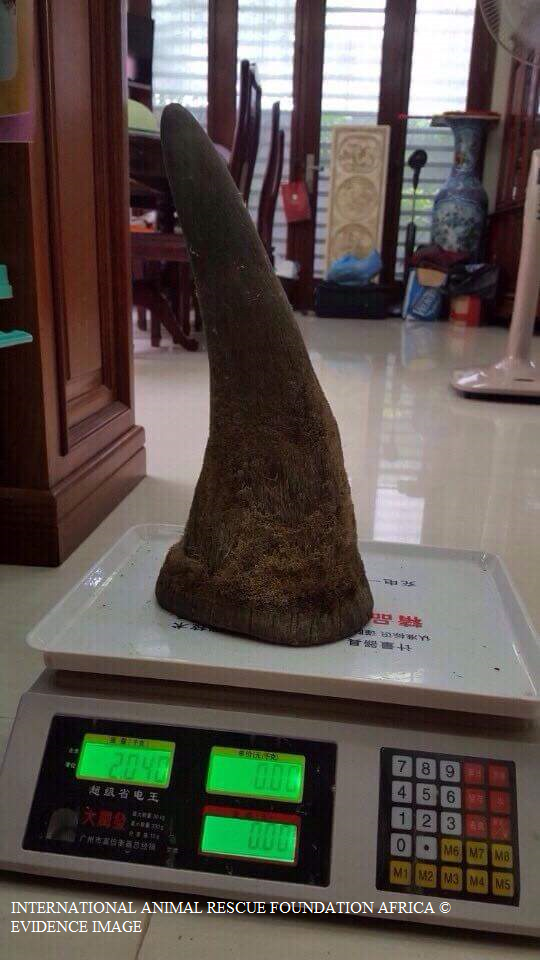
Trader weighs up a mature African rhino horn in back room. Total number of horns are worth in excess of 6 million euros.
Ivory trade was officially banned internationally back in 1989, however it hasn’t stopped these two rather sadistic and ruthless criminals from going about their trade bringing in millions of Vietnamese and Thailand dollars, most of which is traded on the US Facebook social media platform.
Furthermore it explains now where the vast majority of ivory and rhino horn is being traded. Viet Nam was virtually declared a no-rhino horn country by the BBC and the WWF back in 2014 as explained above. Unfortunately had the two investigations units bothered to look a little closer they’d have not only noticed our own concerns (with evidence being shown), but also many private online forums (including Facebook) booming in animal parts trade.
Below are numerous pieces of ivory all of which are not permitted. Investigate officers casually asked within the online chat forum if the ivory below was permitted, the [unnamed trader/peddler] was very forthcoming with his reply stating; “No, none of the ivory here is permitted”, meaning its 100% illegal to own/trade.
On immediately being made aware that the ivory was not permitted we knew instantly that these three individuals were not your average wildlife traders or syndicates. Furthermore on tracing the individuals Facebook profiles we were yet again (as explained) made aware of a female ivory trader that has been visiting Australia and Japan for unknown reasons while trading ivory online. Mrs Chung as we know her we’ve already informed the Australian Federal Police and TRAFFIC about.
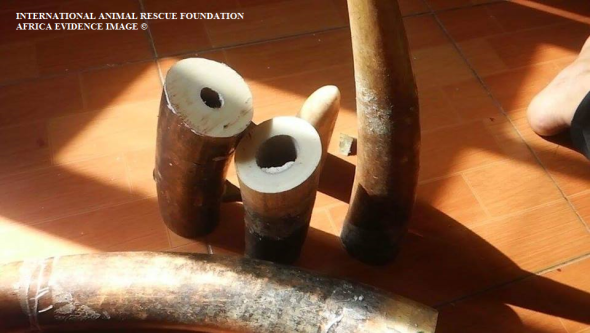
Female trader with male brags to investigative officer how ivory is easily obtainable from Benin via France.
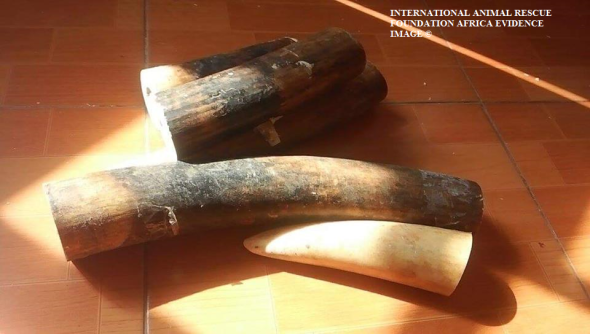
Trader informs investigate officer that ivory can be shipped into any county in the form of small firewood blocks.
The images above are just a small handful of evidence shots obtained from both the Vietnamese and Thai traders that had no worries whatsoever on displaying these items either to our investigative officers, or trading online via secure trading chatter rooms. These chatter room’s are mainly frequented by medicine men and women, and general traders of antique and non-permitted animal parts, all of which anyone can enter on Google using a simple VPN tool.
While ivory trade is not necessarily a big secret within Thailand, the sheer fact that younger people are able to obtain ivory and rhino horn in such mass quantities is extremely concerning. We also have reason to believe that some of the ivory is deriving from passages via Benin and possibly Cameroon on the continent of Africa. Our enquirers in relation to the African trail of ivory into Asia began with Mr Chan**** ***** who states he works for the Homme D’Affaire International which we believe is a made up organisation.
Chan**** *** runs a bush meat shop within Cameroon selling anything from pangolins to endangered turtles, masks and cars, and coincidentally his shop is also operational on Facebook. Had Mr Chan**** *** not bragged about ivory making its way from Benin into Vietnam we’d never have caught up again with our Asian fiends. Some of the images from Ch**** *** bush meat shop of horrors can be viewed below.
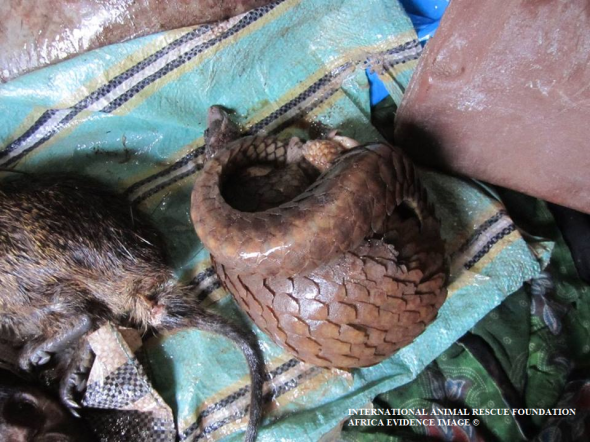
Investigators identified two species of pangolin. Both tie into the Asian and African wildlife traders.
E.A.D officers investigated the trade between the two African and Asiatic pangolins, above is that of an African pangolin which was the same species seen within the apartment of the Vietnamese citizen that offered our Singapore investigative officer rhino horn. So we’re 99% positive that all three Asian citizens have more than your normal ties to the African bush meat poacher whom we know is using a trade route from both Benin and Cameroon, onto Europe and into Asia. The African pangolin 1 of 3 identified in the apartment in Vietnam can be seen below.
African and Asian pangolins are fast becoming rare with the vast majority of Asiatic pangolins now nearing extinction. Pangolins are used within the Asian and African (TCM) Traditional Chinese Medicine trade. Furthermore the scales of the pangolins are used to make jewelry or coats. The meat of pangolins is considered a delicacy. Every year we loose more and more pangolins to poaching, and while the Asian pangolin continues to decrease in population size, the African pangolin will be placed more at risk furthermore.
Investigators were more shocked at the sheer fact that three young adults were able to obtain large quantities of illegal and legal wildlife products then freely trade them on the streets or upon their personal Facebook profile shop forums. The images below depicts large quantities of tiger teeth, bear paws, shark fin and what we believe to be tiger testicles.
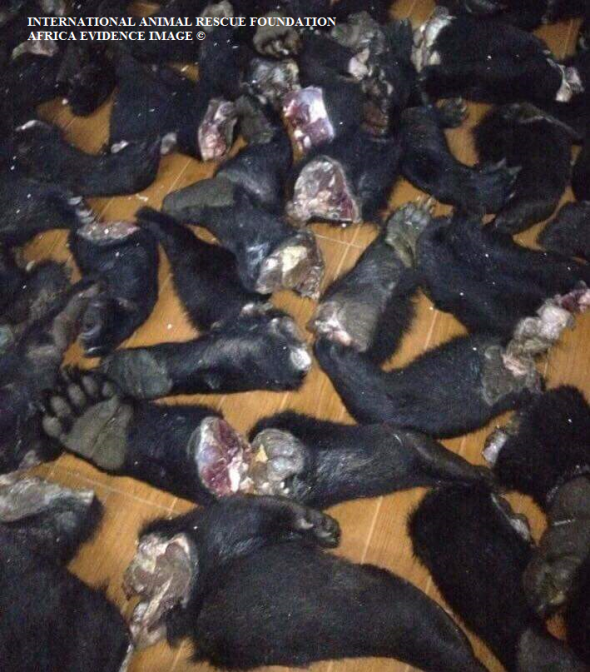
Thai and Vietnam traders offered investigators bear paw, that is used to create a fake medicine soup.
The following images below are from tigers that our International Animal Rescue Foundation Asian unit have successfully identified as Sumatran tigers listed as critically endangered on the IUCN - International Union for the Conservation of Nature’s Red List.
Please note you may find some of the images below disturbing and emotionally upsetting.
Investigative officers were told that tigers are bred within small enclosures within the family home. From there the young cubs are then killed with the adults soon after. There body parts are either stored in a freezer whole, or decapitated. On mentioning tiger skins the EAD officers were informed that some of the tigers are skinned of which their pelts can fetch anything in the region of $5,000 to $10,000 USD. Needless to say we were mortified and shocked at the traders openness and complete disregard to the fact tigers are nearing extinction within the wild.
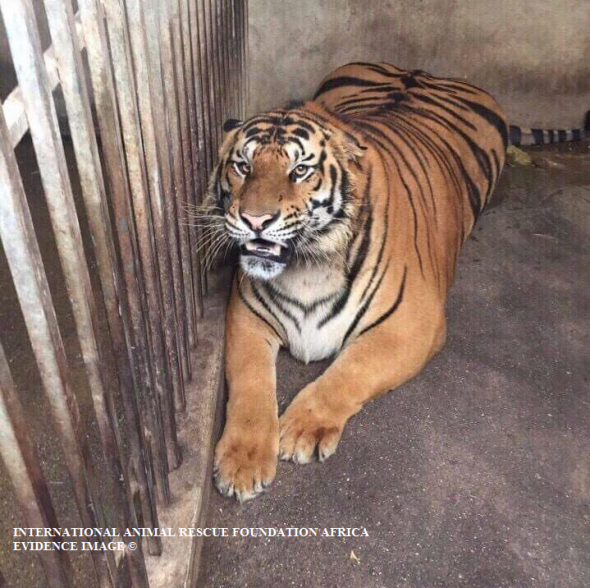
One of nine tigers that both the Thai and Vietnamese traders keep as pets. Sadly to later breed and kill for parts.
The tiger pictured above was being kept as a pet in a dark barred cage in Thailand, Bangkok. We personally believe that the three traders we’ve been monitoring since June 2015 have traded more than nine tigers (if not more). Based on the number of tiger teeth and claws we’ve estimated a probable 20-30 tigers have unfortunately met a rather gruesome and barbaric death, the sheer number of skulls, pelts, teeth, claws and tiger male testicles shows these traders are more than professional. The following images below may be upsetting to some viewers.
Despite the best attempts of law enforcement around the globe, CITES and national NGO’s pushing for stronger laws internationally and locally very little in demand and trade is being seen relating to tigers. A six month investigation of illicit wildlife trade has shown to us that trade is becoming more widespread, younger people are more involved rather than the elder generation. Regardless of education and awareness in schools the E.A.D are now picking up on average a total of 3-4 teenage dealers weekly. Many of them have ties to African bush meat traders too.
As previously explained Asiatic pangolins are nearing extinction, yet despite the amount of seizures being made, little in the way of a decrease in trade is being witnessed. Furthermore as Asian pangolin populations decreases, African pangolins will be poached to continue the trade and demand of pangolin meat, scales and medicine. None of which has any medicinal value whatsoever.
The images below were what prompted E.A.D investigative officers to then look further afield, taking the team from Thailand and Viet Nam to Africa.
From 2010 the External Affairs Department have noticed a staggering increase of tiger teeth and claws on sale via the Social Media platform identified as Facebook. There are two different types of trade. 1. Counterfeit trade which is primarily wooden carved tiger teeth and claws and 2. Real tiger teeth and claws. Like all of the evidence above and below obtained by the EAD’s Operation Trojan Horse officers, every part of the tiger is used for illegal trade.
Tiger teeth and claw necklaces are worn in Asia in the belief that such animal parts will bring the wearer power, good-luck, and ferocity. Many of the traders that we investigate often tell us that they have either found tiger teeth and claws on the ground in forests, purchased antique tiger teeth and claws from dealers. Or in this case have illegally harvested the tiger teeth and claws from home-captive bred tigers seen in the images below. The images below form part of the evidence files on the three individuals spanning from Thailand to Viet Nam.
(Please be warned the following images may be upsetting to some viewers).
Below are step by step guides that the Vietnamese trader bragged to E.A.D officers on how to harvest tiger teeth and claws. The images are upsetting and also include the skinning of tigers.
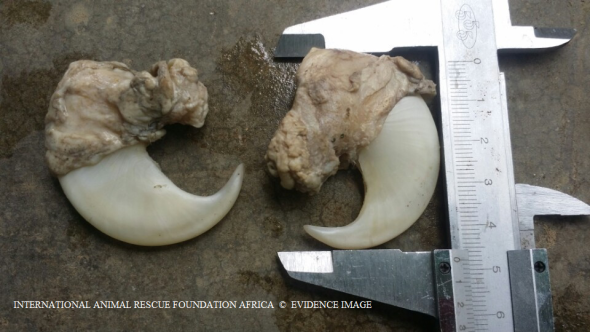
Tiger claws are measured like rhino horn and ivory. This process helps traders to price up and show legitimacy to buyers.
E.A.D officers are (as explained) unsure on the exact number of tigers that these individuals in question are breeding and trading within the home and other premises. From the evidence obtained the number of teeth and claws points to at least 20-30 tigers bred, killed and processed in Thailand and Viet Nam. An unidentified trader who’s name we cannot make public proudly shows on their Facebook page how easy it is to skin a tiger (images seen below).
Tiger testicles are also used within the Traditional Chinese Medicine trade, however this is the first time we ourselves have actually come across such tiger testicle trade (normally one views tiger penis on sale real and counterfeit). The trader[s] we’ve been investigating boasted within an online forum how tiger testicles are now more popular than tiger penis itself.
The image below shows the trader boasting how large the male tiger testicles are before he then sets about to remove, bag and weigh up the testicles for sale. Its believed the testicles ‘may’ be transported illegally into China or onto wealthy Viet Nam/Chinese restaurants where the soup of tiger testicles is ‘allegedly’ known as a delicacy and (aphrodisiac soup). None of which holds any medicinal evidence whatsoever.
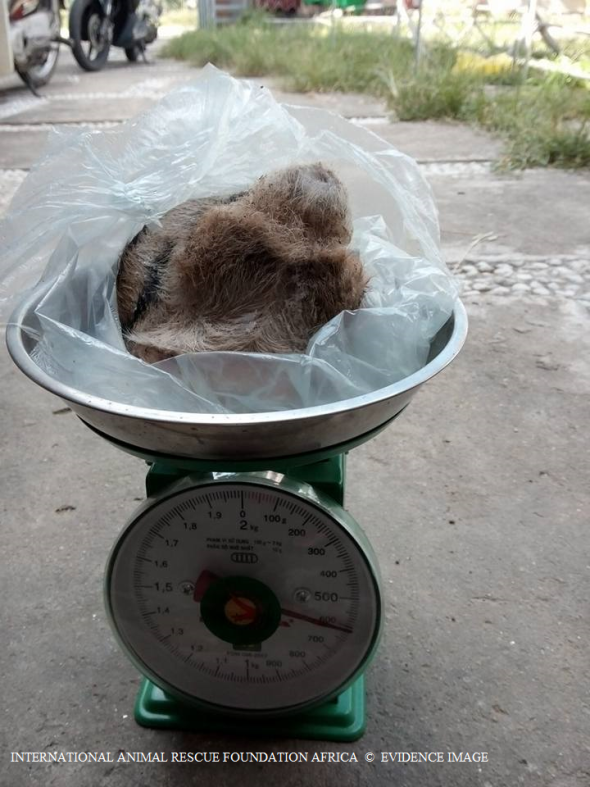
Tiger (testicles) weighed for sale. The testicles will most likely be used to produce tiger testicle soup.
Back in 2013 the Humane Society of the United States stated a total of twenty seven countries had outlawed the sale and trade of shark-fin for the production of shark-fin soup. One would then be led to believe that since this mass outlawing and bans on trade, it would therefore heavily restrict shark poaching and trade of shark-fin soup. In Thailand and Viet Nam it appears not to be the case (both countries have no bans in place).
Unfortunately when E.A.D officers investigated the traders herein this article, we uncovered more than enough shark-fin trade to prove that neither laws or outlawing of the trade is having any real effect on stopping or restricting the trade of shark-fin. On speaking to the unnamed trader within a forum online for TCM trade, the individual boasted how easy it was to obtain shark fin, an transport that into Asian and North American countries. The images below show shark-fins drying at the traders apartment in Thailand and Vietnam.
International Animal Rescue Foundation Africa and two investigation units aligned with us; External Affairs Unit and Operation Trojan Horse (Cyber Crimes Division) have been tracking countless illegal wildlife traders all over the world since IARFA established the (Cyber Crimes Unit). While the evidence above may shock many, its little compared to what we locate every month. Investigative officers work under immense pressure, stress and must work fast to ensure that traders once located are reported to the relevant agencies.
On the 23rd December 2015 Interpol’s Environmental Crime Unit and the Cyber Crimes Serious Investigation Team were alerted to our findings, while we can state now that our investigation which we have decided to make public has shown much data on trade. The investigation is considered normal due to the size. The most shocking aspect of this investigation was the fact that our younger generation are more active now within this illicit trade. That in itself poses some rather large problems and concerns, and one that now needs addressing at both government and educational level.
As of today 29th December 2015 this investigation has since been increased to “extremely urgent”, and the need to locate these men and women is critical before any further animals die, in Asia and Africa. All three individuals have shown a complete disregard to the fact rhino’s, elephants and tiger populations are losing ground throughout the Asian and African continent. Sharks and pangolins are also nearing extinction too. Trade and demand as explained has skyrocketed online to worrying levels, yet slowly vanishing on the ground.
Thailand is the new hub for rhino horn trade and Facebook and other social media platforms are being exploited to trade just about anything wildlife, regardless of such products being illegal. Trade and demand on the ground has also changed from elder to younger individuals (as explained) which is very worrying. One of the largest trading countries that we are seeing to date, is that of Thailand, which would explain why the BBC back in 2014 couldn’t locate much in the way of rhino horn (in Viet Nam).
Since General Prayut Chan-o-cha took over running of Thailand back in 2014 wildlife trade has skyrocketed. While we cannot prove increasing trade has anything to do with General Prayut Chan-o-cha, it just seems too coincidental that a sudden spike of rhino horn, ivory and other wildlife products has shot through the roof.
Facebook was where this investigation ended prompting us to then send all evidence to Interpol. Facebook hosts some 1.32 billion users worldwide, 32% of which use cell phones to login into the United States platform, thus making it difficult to locate traders and dealers.
International Animal Rescue Foundation Africa have been lobbying Facebook since the start of the year, to implement new terms and conditions to heavily disrupt this trade and demand. A petition that has amassed over five thousand signatures can be signed here and shared. However we’re not holding our breath. Should the Facebook platform and its CEO Mark Zukerburger not implement new polices on trade and demand of illicit wildlife products we will unfortunately soon see many species of animals pushed into extinction. Ivory and rhino horn trade has exploded to worrying new levels. Rhinos, elephants and tigers are being poached moreover, and the internet as well as ground trade is awash with anything from drugs, firearms, child trafficking (most of which links back to illegal wildlife trade).
One of the men that is pictured above is responsible for the trade of wildlife parts above, he has since been reported to Interpol along with his partner and other associates whom we have been investigating since June-December 2015. The individual above is believed to be in Hanoi (Nguyen), or Ho Chi Minh City, possibly with an accomplice. His name and other accomplices we cannot make public as yet. The image is recent.
A more closer image of the individual and the female is located below. We believe based on evidence obtained that the male is using the females account on Facebook too.
May this be a stark warning to all wildlife traders out-there. International Animal Rescue Foundation, External Affairs and Operation Trojan Horse will eventually catch up with you. If we catch you trading in wildlife products we will monitor you on the ground and online. From there we will press for your arrest and detention.
Within the past year Interpol has been escalating their new project identified as OPERATION WORTHY II Operation Worthy is targeting many individuals involved in international and local serious crime.
Updates on this case will follow as and when we’re updated. Thank you for reading.
Chief Environmental Officer (CEO)
Director
If you would like to make a small donation to our organisations investigations department please click the link >here< Your donation funds 10% of our environmental projects, while we ‘self fund’ the remainder 90%. Please contact us via the email above for further information. You are not at liberty to donate, nor do we beg.
“REPORT WILDLIFE CRIME TODAY”

